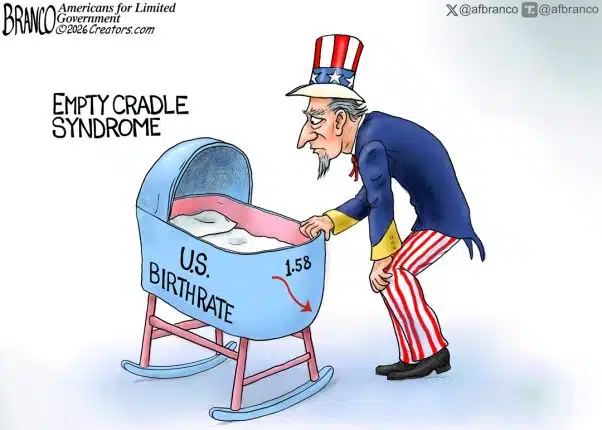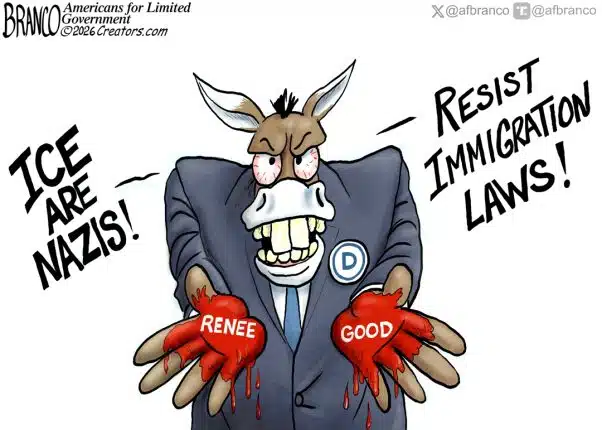 By Robert Romano –
By Robert Romano –
Government just needs a little more power, it says.
Proponents of unlimited bailouts are once again blaming the management of bailouts for their inherent failures to mitigate the crises they profess to avert. Last week, the EU Monetary Affairs Chief Olli Rehn blamed the financial crisis on the “failure” of the federal government to save Lehman Brothers from bankruptcy, and used the example to justify an EU-IMF bailout for Greece.
Said Rehn, “Little did authorities of the United States know in September 2008 what the bankruptcy of investment bank Lehman Brothers would lead to. The consequence was that the world’s financial system was paralyzed in a way that led to the biggest global recession since the 1930s. Consequences from Greece’s insolvency would be similar if not worse.”
So, argues Rehn, Greece must be bailed out. And so she has been, with the European Union and the International Monetary Fund (filled with U.S. taxpayer dollars) offering €110 billion in handouts from Germany and France.
This inherent premise, that if only Lehman had been saved in a timely manner, market participants would have somehow been saved the wrath of having overleveraged themselves, is reinforced by a recent Financial Times piece by former Chairman of the Federal Housing Finance Board Allan Mendelowitz and Penn State Associate Professor John C. Liechty. They believe regulators need more information on the interconnectedness of banks, firms, and other entities so that government reacts quicker when “systemic risk” is detected, and have thus proposed the creation of an Office of Financial Research.
The authors write, “the reality was no one knew the extent to which important market participants were exposed to Lehman and no one could see how the vast counterparty network connected market participants together… The data was just not there and [then-Treasury Secretary Hank Paulson] had no way of knowing that the failure of Lehman would cascade through the markets resulting in a panic that would ultimately freeze the $2,000bn commercial paper market.”
Senator Chris Dodd has therefore included the Office of Financial Research in his legislation in the U.S. Senate, which Barack Obama supports. As detailed in a recent summary by Americans for Limited Government, if the bill is not amended, the Office would be tasked with the power to “collect, validate, and maintain all data necessary” to maintain financial stability “obtained from member agencies, commercial data providers, publicly available data sources, and financial entities.”
Essentially, this is the power to monitor, and in extension, control all economic and financial activity in the country without regards to an individual’s reasonable expectation of privacy. So, to stave off any future crises, government wants limitless powers to monitor the financial system including, should they deem it necessary, all personal and proprietary finances. That way, if anything goes wrong, they’ll be able to act quickly.
Unfortunately, this misguided view is based upon the myth that government is the primary driver of economic activity, that economic downturns can somehow be avoided through enlightened government action, and that poor financial decisions can be prevented through government micromanagement of individual judgment.
For similar reasons, some argue that politicians should only make “positive” statements on the economy, so as to not “spook” the markets. That, somehow, the government is in the command-and-control driver’s seat of the economy.
Therefore, the decisions made by government — and the information it presents to the public — at the helm can somehow steer markets away from the corals, but the decisions must be made quickly, like a general in war. There can be no debate. The idea here is that with Lehman, or Greece, if only bailouts were speedier and uncontroversial (and the people who have to pay for them didn’t stand in the way), they would work.
This is a very dangerous proposition, because it also implies the inverse: that markets and the public should actually have less information about government interventions. Indeed, that bailouts should be made in secret and by executive edict so that no credible opposition to them may be mounted, which would slow down their implementation.
In fact, this is precisely the direction the debate over the Dodd financial takeover bill took last week. For example, last week Senator Bernie Sanders agreed to weaken an amendment to the bill that would have provided for a full audit of the Federal Reserve after the Fed and Obama Administration cried foul, and said the central bank’s independence was threatened.
The amendment would have lifted restrictions on the Government Accountability Office to audit the Fed’s discount window lending, deliberations, open market operations, and transactions with foreign central banks or governments.
Fed Chairman Ben Bernanke thinks we’re better off not knowing about these activities. If everyone knew what was behind the curtain, he warns that “Such amendments, if enacted, would seriously threaten monetary policy independence, increase inflation fears and market interest rates, and damage economic stability and job creation.” In other words, the Fed bailouts may be worse than anyone knows.
If the people knew more about them, they wouldn’t be happy. Markets would also behave accordingly. Seeing the full scope of monetary expansion, they would price inflation in accordingly. As prices rose across several types of consumer goods, including energy, housing, and medicine, the people would demand Congress that the easy money be reined in.
So, to solve the problems posed by public oversight, bailout proponents actually want less transparency of government interventions into the economy.
They also want an unlimited, speedy bailout authority in the Dodd bill. And, despite Senate Republican attempts to remove it, the limitless “orderly liquidation fund” is still included in the bill. It has not been removed, despite claims to the contrary.
To summarize, those who want unlimited bailout authority believe that the more “compliant” the public and markets are with the corporatist regime, and the less they know about how it works, the less “disruptive” government interventions into the economy will be. Meanwhile, they argue that they must know everything about every financial transaction in the country to detect “systemic risk.”
Not only is this authoritarian, it’s provably false. Markets crashed as a direct result of the command-and-control policy decisions by government to loosen credit, expand the money supply, and promoting the social policy of low-income home ownership, thus creating the mother of all asset bubbles. Markets played along, like sheep, throughout the 1990’s and 2000’s. It made billionaires out of those who gamed the system.
And when the bubble popped, the American people were the ones left holding the bag. Now, having wrecked the global financial system, government seeks more power to manage the unintended consequences of its own policies.
Market interventionism is ascending to a level that historically has been reserved for military planning and intelligence. And Politburos. This is tyranny in disguise, and it must be stopped.
Robert Romano is the Senior Editor of ALG News Bureau.






